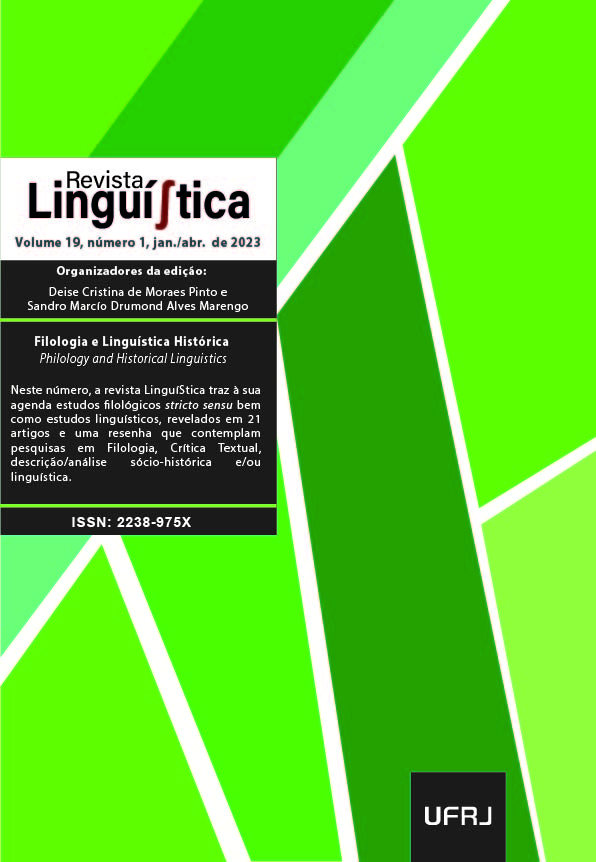Língua Geral de Mina: A picture of the linguistic history of enslaved Africans in Brazil
DOI:
https://doi.org/10.31513/linguistica.2023.v19n1a58269Keywords:
linguistic history, linguistic ecology, gbe languages.Abstract
This paper deals with the linguistic history of enslaved Africans in Brazil. One analyses Língua Geral de Mina (LGM), a Gbe language documented in Brazil during the mining economy (18th-century). The main argument is that even in the colonial context that Gbe variety brought from Mina Coast retained its characteristic morphosyntactic features, such as reduplicated attributive adjectives and inherent complement verbs, that were analyzed in this paper. After exposing the theoretical framework, one shows the ecological factors (MUFWENE, 2001; 2008) that contributed to the vitality of LGM in Brazil, e.g., the ethnolinguistic homogeneity of Gbe people, the socioeconomic structure of the mining area, and the social networks that were created by the enslaved Africans in Minas Gerais. One includes some linguistic data in the discussion in order to emphasize that LGM was a language used in the social interactions in that region. In this sense, one argues that languages are devices that are used by the speakers in order to achieve their objectives.Downloads
Published
Issue
Section
License
Copyright (c) 2023 Revista Linguí∫tica

This work is licensed under a Creative Commons Attribution-NonCommercial 4.0 International License.
Authors who publish in the Revista Linguí∫tica agree with the following terms:
The authors maintain their rights, ceding to the journal the right to first publication of the article, simultaneously submitted to a Creative Commons license permitting the sharing with third-parties of published content as long as it mentions the author and its first publication in the Revista Linguí∫tica.
Authors may enter into additional agreements for the non-exclusive distribution of their published work (for example, posting in online institutional or non-profit repositories, or book chapters) so long as they acknowledge its initial publication in the Revista Linguí∫tica.

The journal Revista Linguí∫tica is published by the Post-Graduate program in Linguistics of UFRJ and employs a Creative Commons - Attribution-NonCommercial 4.0 International (CC-BY-NC).









